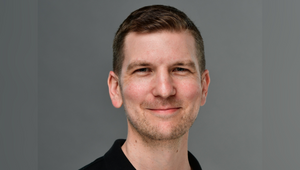
Planning for the Best: Belinda Moon on the Satisfaction of Connecting Business and Consumer Problems

Belinda Moon is group strategy lead for Wavemaker US, having spent 16+ years within the WPP and GroupM network creating award-winning campaigns across CPG, retail, financial services, B2B, beauty, and healthcare categories. She has worked in various functions of client services, planning, and buying at both local and global capacities, but her passion lies in Communications Strategy. She believes that being a brilliant Strategist involves being two parts spy and one part therapist. She loves solving complex problems for clients that can set them on a new trajectory of growth.
LBB> What do you think is the difference between a strategist and a planner? Is there one?
Belinda> Strategists and planners can have a different meaning if you are at a creative agency, media agency, big agency, or small agency, etc. It is less about whether you have strategy or planner in your title, but more about what type of problem you are solving for clients and where you sit in that ecosystem.
LBB> And which description do you think suits the way you work best?
Belinda> I believe there is a special craft and nuance when it comes to brand, comms, and media strategy. However, I see communications strategy being the area that more brand planners and media planners need to stretch into to make their work more practical and meaningful. If you happen to be in comms, you have the best of all worlds where you can choose to be a purist or lean further into brand or media. On paper, I am a comms strategist, but my actual day job requires getting much farther upstream consulting on business and brand strategy, marketing effectiveness, and creating marcomm solutions grounded in evidence. I realised early on that a brilliant strategy is often meaningless without the right business case and evidence to convince a CEO or CFO to invest in your strategy with confidence.
LBB> We’re used to hearing about the best creative advertising campaigns, but what’s your favourite historic campaign from a strategic perspective? One that you feel demonstrates great strategy?
Belinda> Even after 10+ years, my favourite campaign is still IBM’s Smarter Cities. IBM, at the time, was best known for turning intelligence and tech into value for its customers. This campaign was a communication strategy at its best with a simple articulation of IBM’s brand proposition by helping cities run more efficiently and improve residents’ quality of life. They repurposed media using clever solutions to common problems that many city residents often face, making a simple curve on a billboard into benches, ramps for bikes/wheelchairs, and rain shelters all around cities. You instantly understood IBM’s value proposition of smarter solutions and the campaign has gone on to tackle bigger topics like Smarter Planets, which shows the platform’s longevity and resonance even today.
LBB> When you’re turning a business brief into something that can inform an inspiring creative campaign, do you find the most useful resource to draw on?
Belinda> Searching relevant hashtags on social media. People are incredibly vulnerable on these platforms and you very quickly get to the heart of the consumer problem.
LBB> What part of your job/the strategic process do you enjoy the most?
Belinda> There is nothing more satisfying than clearly connecting a business problem to the consumer problem and into a simple solution. Strategy is messy. It’s easy to get lost in the noise but when those three things click, it is pure joy.
LBB> What strategic maxims, frameworks or principles do you find yourself going back to over and over again? Why are they so useful?
Belinda> Many strategists feel frameworks are restricting but I find them to be a disciplined way to distil mounds of research. The one I use repeatedly at the beginning of my process is below, which quickly helps you get to an opportunity and focuses the rest of the strategic work.
Brand Weakness x Category Strength = Challenge
Brand Strength x Category Weakness = Opportunity
LBB> What sort of creatives do you like to work with? As a strategist, what do you want them to do with the information you give them?
Belinda> I love working with creatives who never lose sight of the business problem even with the most emotional and out of the box ideas.
LBB> There’s a negative stereotype about strategy being used to validate creative ideas, rather than as a resource to inform them and make sure they’re effective. How do you make sure the agency gets this the right way round?
Belinda> The truth is that with the pressure put on agencies these days, there will inevitably be situations when there is simply not enough time to do all the rigour of strategy plus the time needed for creative or media specialists to develop and bring an idea to life. Strategy, in many ways, is very similar to the creative process where even when the result seems brilliantly simple, the route to finding it is rarely so. It takes time. However, we often find ourselves short-changing the strategy process to give creative or media ideation more time. I don’t believe there is only one way to work. Many times, a half-baked strategy is further sharpened throughout the creative process. But I’ve also seen a lot of time wasted if there isn’t enough focus in the beginning. Ultimately it comes down to the best solution to solve the challenge so if that was birthed through the strategy or creative process, it doesn’t really matter. The other team just needs to know how to put egos aside in the best interest of the client.
LBB> What have you found to be the most important consideration in recruiting and nurturing strategic talent? And how has Covid changed the way you think about this?
Belinda> When it comes to recruitment, the key is striking the right balance between hiring for the account and their ability to solve the client’s business challenges along with the talent you need to diversify skill sets within the strategy group. After Covid, now more than ever, people want a career, not a job. They want a coach, not a boss. I think strategy is unique in the way it gives people both of those things – we get to solve interesting human challenges and exchanging of ideas and views are critical to get to good work.
There’s no better way to learn than to do the hard work of strategy but they need to be given the opportunities. Reading and listening to theories and being inspired by brilliant case studies can only take you so far. You need to know how to turn that theory or intuition into a recommendation to clients. You need to know how to pitch and re-pitch a strategy over and over again to different stakeholders, internally and externally, to get it over the line and into the real world.
LBB> In recent years it seems like effectiveness awards have grown in prestige and agencies have paid more attention to them. How do you think this has impacted on how strategists work and the way they are perceived?
Belinda> I believe the academics of marketing and understanding effectiveness today is critical in giving clients the confidence they need to sell a strategy into their CEO or CFO. Most companies today still don’t see advertising as an investment that protects them from future threats. They don’t realise that the decisions they made three to five years ago are still impacting their business and bottom line today.
LBB> Do you have any frustrations with planning/strategy as a discipline?
Belinda> The most frustrating part is when a strategy gets watered down through a series of reviews or down the line into activation. We work with and within matrixed organisations and it takes a lot of energy and coordination to keep the integrity of the strategy in place throughout the whole process.
LBB> What advice would you give to anyone considering a career as a strategist/planner?
Belinda> All clients want work that’s on strategy, but not all clients want agencies to do the strategy work on their behalf. Find clients who are either going through massive disruption (they’re often not the sexiest but most interesting problems to solve) or find clients who genuinely want provocative and insightful work.












